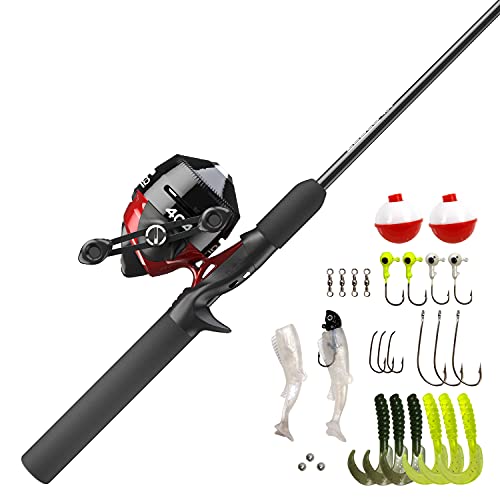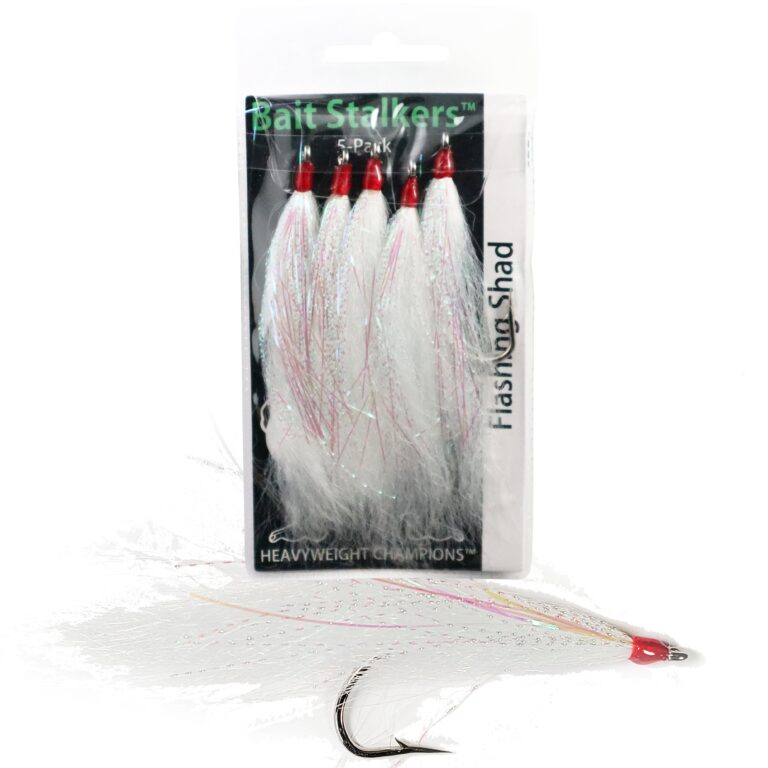Magnet fishing is illegal in some countries including germany, austria, and switzerland due to environmental concerns and safety risks associated with the activity. Magnet fishing, a popular hobby that involves using a strong magnet to search for treasure in bodies of water, has gained popularity in recent years.
However, it is important to note that this activity is not legal everywhere. In some countries, such as germany, austria, and switzerland, magnet fishing is considered illegal. The main reasons for this restriction are concerns over the potential environmental damage that may occur, as well as the safety risks involved.
For example, magnetic fishing can lead to the retrieval of hazardous materials or unexploded ordnance. Therefore, it is crucial for enthusiasts to be aware of the legality of magnet fishing in their respective countries to ensure compliance with the law and protect the environment.

Credit: issuu.com
Understanding Magnet Fishing Laws
What Is Magnet Fishing?
Magnet fishing, also known as magnetic fishing, is a popular outdoor activity that involves using a strong magnet to search bodies of water for valuable or interesting items. Participants attach a magnet to a rope, throw it into the water, and then slowly reel it in, hoping to attract metallic objects that may be hidden beneath the surface.
The Rise In Popularity Of Magnet Fishing
In recent years, magnet fishing has gained significant traction among hobbyists and outdoor enthusiasts. Here are some key points to understand the rise in popularity of this unique activity:
- It offers a thrilling and adventurous experience for individuals who enjoy exploring the unknown and discovering hidden treasures.
- Magnet fishing provides an opportunity to engage with nature while searching for historical artifacts, discarded objects, and even potential evidence of crimes.
- Social media platforms have played a crucial role in promoting magnet fishing, with enthusiasts sharing their finds and experiences, which has further fueled its popularity.
- The simplicity and accessibility of magnet fishing make it appealing to individuals of all ages, requiring minimal equipment and being easily accessible in various water environments.
Exploring The Legal Aspects Of Magnet Fishing
While magnet fishing is a popular recreational activity, it’s essential for participants to be aware of the legal implications and potential restrictions. Here are the key points regarding the legal aspects of magnet fishing:
- Laws and regulations regarding magnet fishing vary by country and even within different regions or municipalities. It’s crucial to understand and adhere to the specific rules in the area you’re planning to engage in this activity.
- Some countries, such as germany and the netherlands, have embraced magnet fishing and have designated areas where it is permitted. However, even in these countries, certain restrictions may apply, such as obtaining proper permits or reporting any significant finds.
- On the other hand, some countries, including the united kingdom, consider magnet fishing as a potential environmental hazard and have imposed legal restrictions or outright bans on the practice.
- It’s essential to research and consult local authorities, fishing or environmental agencies, or relevant authorities to determine whether magnet fishing is legal in your specific area. Ignoring these regulations can result in fines, legal consequences, or damage to the environment and wildlife.
Magnet fishing is a thrilling and engaging activity that allows individuals to explore bodies of water while searching for hidden treasures. However, it’s crucial to be well-informed about the legal aspects and restrictions that govern this practice in order to ensure a responsible and enjoyable experience.
So before embarking on your magnet fishing adventure, make sure to do your homework and understand the rules and regulations in your area. Remember to leave nature undisturbed and follow the principles of sustainable outdoor activities. Happy magnet fishing!
Countries With Strict Regulations On Magnet Fishing
United Kingdom: A Hotspot For Magnet Fishing Enthusiasts
Magnet fishing has gained popularity among hobbyists and outdoor enthusiasts looking for unique treasures in the united kingdom. Here are some key points to note about the regulations and magnet fishing in the uk:
- Magnet fishing is legal in the uk, but there are restrictions in certain areas. It is essential to research and obtain permission before magnet fishing in private property or protected locations to avoid legal issues.
- The environment agency oversees magnet fishing activities and advises enthusiasts to be responsible and mindful of the environment. They encourage proper disposal of any waste or potential hazards found during the activity.
- While magnet fishing is generally allowed in rivers, canals, and lakes, there are some exceptions. Some bodies of water, such as those with ecological significance or historical artifacts, may have restrictions to protect their integrity.
- It’s crucial to abide by the “leave no trace” principle when magnet fishing. This means leaving the area as you found it and not causing any disturbance to the natural environment.
- Magnet fishing in the uk has revealed various exciting discoveries, including old coins, antique weaponry, and even historical artifacts. The thrill of uncovering lost treasures contributes to the growing popularity of this recreational pastime.
Germany: Stringent Rules Governing Magnet Fishing
Magnet fishing is subject to stringent regulations in germany due to concerns about safety and preservation of historical artifacts. Consider the following important points regarding magnet fishing in germany:
- Germany has a far-reaching set of rules and regulations surrounding magnet fishing. These regulations aim to protect cultural heritage and ensure public safety.
- In germany, magnet fishing is explicitly prohibited in certain areas, such as historical sites and protected nature reserves. Breaking these regulations can result in fines or other legal consequences.
- Permission is generally required to engage in magnet fishing in germany. It is essential to obtain permits from the appropriate authorities, such as local municipalities or landowners, before engaging in the activity.
- Safety is a significant concern in germany when it comes to magnet fishing. Unexploded ordnances from world war ii are still occasionally found in bodies of water, making it crucial for enthusiasts to exercise caution and report any potentially dangerous discoveries to the authorities.
- Despite the strict rules, magnet fishing remains a popular activity in germany, attracting individuals eager to explore the history hidden beneath the water’s surface.
France: Cultural Heritage Protection And Magnet Fishing Restrictions
France, renowned for its rich cultural heritage, also places certain restrictions on magnet fishing to protect its historical treasures. Here are key points to know about magnet fishing regulations in france:
- Magnet fishing is generally permitted in france; however, individuals must be aware of specific regulations that vary across different regions.
- Certain areas in france, such as historical sites, national monuments, and archaeological zones, prohibit magnet fishing. These locations are deemed crucial for preserving the country’s cultural heritage.
- In some areas, magnet fishing may be allowed under certain conditions, such as obtaining prior authorization from local authorities or following specific guidelines.
- French law mandates that any historical, archaeological, or culturally significant findings made during magnet fishing must be reported to the relevant authorities. Failure to do so can result in legal consequences.
- It is crucial for magnet fishing enthusiasts in france to research and understand the regulations specific to their intended fishing locations, ensuring compliance and respect for cultural heritage.
Remember to always check the latest regulations and guidelines before engaging in magnet fishing in any country. Respecting the laws and protecting the environment and cultural heritage are vital aspects of this exciting recreational activity.
Prohibited Locations For Magnet Fishing
When it comes to magnet fishing, it’s crucial to be aware of the prohibited locations where this activity is not allowed. Respecting boundaries and following the regulations ensures the preservation of historical sites, protected habitats, and private property. Let’s explore some key points regarding these restricted areas:
Historical Sites And Archaeological Areas: Preserving The Past
- Historic sites and archaeological areas are off-limits for magnet fishing to safeguard their integrity and preserve their priceless artifacts.
- Disturbing these sites can result in irreversible damage, as the items found may hold significant cultural or historical value.
- Unesco world heritage sites and other protected historical locations strictly prohibit magnet fishing due to their historical importance.
Nature Reserves And Protected Habitats: Safeguarding Ecosystems
- Magnet fishing in nature reserves and protected habitats is prohibited to maintain the delicate balance of these ecosystems.
- Disturbing these areas can disrupt the habitat and negatively impact the flora and fauna that depend on them.
- Respecting these restrictions ensures the longevity of natural habitats, safeguarding biodiversity for future generations.
Private Property And Prohibited Areas: Respecting Boundaries
- Engaging in magnet fishing on private property without permission is both illegal and disrespectful to the rights and privacy of landowners.
- It’s essential to obtain proper authorization from the property owner before attempting magnet fishing.
- Some areas may be designated as prohibited due to safety concerns, such as near dams, power plants, or other hazardous locations.
Remember, adhering to these guidelines not only helps ensure your own safety but also protects the environment and preserves our historical heritage. Always research the specific regulations in your area before embarking on a magnet fishing adventure. Happy and responsible magnet fishing!
Bullet points:
- Magnet fishing is prohibited at historical sites and archaeological areas to preserve their integrity and protect priceless artifacts.
- Nature reserves and protected habitats do not allow magnet fishing to maintain the delicate ecosystem balance and safeguard biodiversity.
- Respecting private property rights and obtaining permission from landowners is essential before engaging in magnet fishing.
- Some areas may be prohibited due to safety concerns, such as hazardous locations or those in close proximity to dams or power plants.
Local Restrictions In Popular Magnet Fishing Spots
London, Uk: Restrictions Along The Thames River
Magnet fishing is a popular hobby that involves using a powerful magnet to attract and retrieve metal objects from bodies of water. While it can be an enjoyable and exciting activity, it’s important to be aware of local restrictions to ensure you are engaging in magnet fishing legally and responsibly.
In london, uk, the thames river is a well-known magnet fishing spot, but there are certain restrictions in place to protect both the environment and public safety.
- Magnet fishing is generally allowed along the thames river, but there are specific areas where it is prohibited. These include:
- The stretch of the river within the boundaries of the city of london.
- Areas designated as scheduled monuments or protected sites, such as the tower of london and greenwich.
- Places where restricted access is enforced due to ongoing construction or maintenance work.
- It’s important to familiarize yourself with these restrictions and respect the designated areas. Ignoring these rules can result in fines or other legal consequences.
- Additionally, it’s worth noting that the river thames is subject to tidal fluctuations, which can affect the safety and feasibility of magnet fishing. It’s crucial to be aware of tides and currents and to exercise caution when engaging in this activity.
Amsterdam, Netherlands: Magnet Fishing Regulations In The Canal Network
As magnet fishing gains popularity in amsterdam, it’s essential to understand the regulations in place to ensure a positive and lawful experience. The city’s picturesque canal network offers ample opportunities for magnet fishing, but there are certain rules and limitations to keep in mind.
- Magnet fishing is generally allowed in amsterdam’s canals, but there are specific restrictions to protect the city’s historical and cultural heritage. These include:
- Prohibited areas near iconic landmarks, such as the anne frank house and the royal palace.
- Certain designated zones where magnet fishing is not permitted, often marked by signs or information boards.
- It’s essential to respect these regulations and avoid magnet fishing in prohibited areas. Engaging in this activity without adhering to the rules may lead to penalties and spoil the experience for others.
- Furthermore, as amsterdam’s canals are shared spaces, it’s crucial to be mindful of others using the waterways, such as boats and cyclists. Be considerate and avoid obstructing or endangering any individuals or vessels.
Paris, France: Strict Enforcement Around Famous Landmarks
Paris, the enchanting capital of france, is home to numerous famous landmarks that magnet fishing enthusiasts may be tempted to explore. However, it’s crucial to be aware of the strict enforcement and limitations in place to protect these iconic sites.
- In paris, magnet fishing is strictly prohibited near famous landmarks like the eiffel tower, louvre museum, and notre-dame cathedral. These areas are heavily monitored to preserve their historical and cultural significance.
- The authorities in paris take the protection of these landmarks seriously, and strict penalties may be imposed for disregarding the restrictions. It’s vital to respect the rules and appreciate the beauty of these landmarks without interfering or causing any harm.
- If you are interested in magnet fishing in paris, it’s recommended to focus on other areas away from the famous landmarks. The city’s numerous canals and rivers still offer plenty of opportunities for this fascinating activity.
Remember, wherever you choose to engage in magnet fishing, it is crucial to always research and comply with the local regulations and guidelines in order to ensure a safe, enjoyable, and responsible experience.
The Potential Dangers Of Magnet Fishing
Magnet fishing has gained popularity in recent years as a unique outdoor activity that combines the thrill of treasure hunting with the simplicity of fishing. However, it’s important to be aware of the potential dangers associated with this hobby. In this section, we will explore two significant risks: environmental damage caused by discarded magnets and the dangers associated with unexploded ordnance.
Additionally, we will provide some safety precautions to ensure responsible magnet fishing.
Environmental Damage Caused By Discarded Magnets
- Magnet fishing involves casting powerful magnets into bodies of water in the hopes of retrieving metal objects. Unfortunately, many magnet fishers may accidentally lose their magnets during the process, leaving them abandoned underwater.
- These discarded magnets can pose a significant threat to the environment. If left unchecked, they can become a hazard for wildlife, especially aquatic creatures. Fish, turtles, and other animals may mistake them for food or become entangled, resulting in injury or death.
- Additionally, the presence of magnets on riverbeds or lake floors can disrupt the natural ecosystem. They can harm aquatic plants, disturb sediment layers, and impact the overall health of the water body.
Risks Associated With Unexploded Ordnance
- Unexploded ordnance (uxo) refers to explosive weapons that have been deployed but failed to detonate. This includes artillery shells, grenades, and other munitions that may have been disposed of in bodies of water.
- Magnet fishing near areas with a history of military activities or conflicts increases the risk of encountering uxo. Disturbing or mishandling these dangerous explosives can have severe consequences, potentially causing injury or even death.
- It is crucial to exercise extreme caution and remain vigilant when magnet fishing in such locations. Always prioritize safety and be aware of any signs or warnings indicating the possible presence of uxo.
Safety Precautions For Responsible Magnet Fishing
- Research the legality of magnet fishing in your area. Some places may have specific regulations or restrictions, and it’s essential to adhere to them to avoid legal consequences.
- Conduct thorough research on the body of water you intend to magnet fish in. Look for any known hazards or restricted areas that may pose risks to your safety.
- Use appropriate safety equipment, such as gloves and sturdy footwear, to protect yourself while handling the magnets and any potential objects you retrieve.
- Be cautious of your surroundings and the presence of others. Avoid magnet fishing in crowded areas or places with high foot traffic to minimize the risk of accidents or injuries.
- If you come across any dangerous or suspicious items, do not handle them yourself. Instead, contact the local authorities and report your findings immediately.
- Always clean up after yourself and dispose of any debris properly. Leaving behind trash or unwanted items can contribute to environmental pollution and harm wildlife.
By being aware of the potential dangers and taking necessary safety precautions, magnet fishing can be an enjoyable and safe outdoor activity. Remember to prioritize the well-being of the environment and your personal safety to ensure a responsible and positive magnet fishing experience.
Alternatives To Magnet Fishing In Restricted Areas
Magnet fishing may be an exciting and rewarding hobby, but it’s essential to understand the laws and regulations surrounding it. If you find yourself in an area where magnet fishing is illegal, fear not! There are plenty of other activities you can enjoy that deliver similar thrills and adventures.
Here are some great alternatives to magnet fishing in restricted areas:
Metal Detecting: Exploring The Land For Hidden Treasures
Metal detecting is an excellent alternative to magnet fishing, providing the same element of discovery and exploration. Here are key points about metal detecting:
- Easy to learn: Metal detecting is a hobby that anyone can pick up. All you need is a metal detector and the willingness to explore.
- Treasure hunting: Uncover hidden relics, coins, jewelry, and other fascinating artifacts buried beneath the ground.
- Adaptable to various terrains: Whether you’re in a park, at the beach, or exploring an ancient site, metal detecting can be done almost anywhere.
- Uncover history: Every artifact you find tells a story, allowing you to connect with the past and learn about the people who came before us.
- Legal and widely accepted: Unlike magnet fishing, metal detecting is generally permitted in most areas, making it a safe and lawful alternative.
Geocaching: A Treasure Hunting Adventure For All Ages
Geocaching is a modern-day treasure hunt that combines technology, outdoor exploration, and problem-solving. Here are key points about geocaching:
- Gps-based activity: Use your smartphone or a dedicated gps device to navigate specific coordinates and hunt for hidden caches left by other players.
- Fun for the whole family: Geocaching is suitable for all ages, making it the perfect activity to enjoy with friends, family, or even solo.
- Global community: Join a vast network of geocachers worldwide, exchanging tips, participating in challenges, and discovering hidden gems in unexpected places.
- Diverse settings: Geocaches can be found in urban areas, parks, forests, mountains, and even underwater, offering endless opportunities for exploration.
- Environmental appreciation: Geocachers often practice “cache in trash out” (cito), where they clean up litter during their search, contributing to a cleaner environment.
Underwater Diving: Exploring Submerged Treasures Responsibly
If you find yourself restricted from magnet fishing in certain areas, why not take your treasure hunting skills beneath the surface? Here are key points about underwater diving:
- Discover hidden treasures: Explore rivers, lakes, and oceans to uncover sunken ships, forgotten artifacts, and underwater wonders.
- Preserve history: By exploring submerged areas responsibly, you contribute to the preservation of historical sites and artifacts, promoting conservation efforts.
- Get certified: Underwater diving requires proper training and certification to ensure your safety and protect the marine environment.
- Dive responsibly: Adhere to local regulations, obtain permits if necessary, and follow best practices to minimize your impact on underwater ecosystems.
- Experience the beauty of marine life: Underwater diving allows you to witness the breathtaking wonders of coral reefs, colorful fish, and other marine species.
Remember, when enjoying these alternatives to magnet fishing, always respect the environment, follow local regulations, and practice safety measures to ensure a memorable and enjoyable experience.
Conclusion
It is crucial for magnet fishing enthusiasts to be aware of the laws and regulations surrounding this activity. Although magnet fishing can be a rewarding and exciting hobby, it is essential to understand where it is legal and where it is not.
Many countries and regions have imposed strict regulations to protect the environment and historical sites. The united states, for example, has specific laws at the federal, state, and local levels regarding magnet fishing. Similarly, countries like the united kingdom and canada have regulations in place to ensure the preservation of historical artifacts and the safety of individuals.
By researching and being aware of these laws, magnet fishermen can enjoy their hobby responsibly and contribute to the conservation efforts in their respective communities. Remember, always check local laws before you cast your magnet. Happy and legal magnet fishing adventures!





